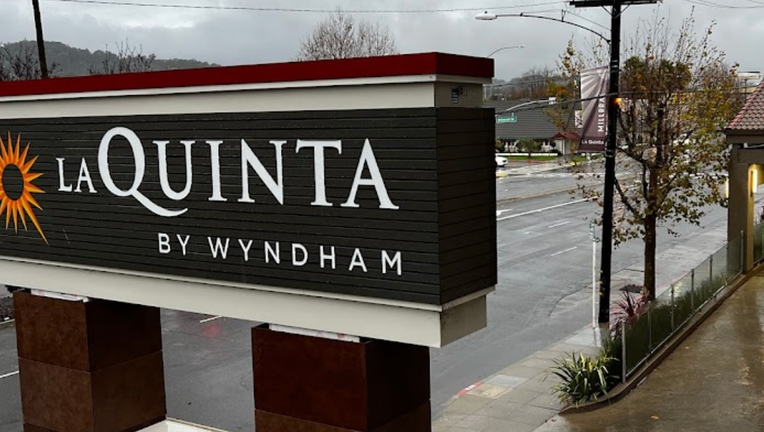Tensions rise at Millbrae city council meeting over conversion of hotel into housing

La Quinta in Millbrae. Photo: Amar Desai
MILLBRAE, Calif. - A Millbrae City Council meeting descended into a shouting match Tuesday as the council and city residents debated a San Mateo County plan to convert a hotel into low-income housing.
Nearly three hours of comments from the council and the public followed a presentation by San Mateo County Manager Mike Callagy at Tuesday's meeting on the planned purchase of the 99-room La Quinta Inn & Suites.
The county Board of Supervisors met with Ramkabir LLC, which represents the owners of the hotel, last month during a closed session meeting to discuss the purchase of the hotel to convert it into housing for low-income residents.
Currently, the city of Millbrae is mandated by the state of California to construct nearly 900 new units of housing for low-income and extremely low-income residents by 2030, according to City Manager Thomas Williams.
The most significant concern for many, including Millbrae Mayor Ann Schneider, is the loss of an estimated $600,000 annually in hotel occupancy taxes. Schneider says that the city currently lacks funding for many of its current priorities, including building a city pool and setting up an aquatics program, or repairing roads, which Schneider says are the among the worst in the county.
"We are the closest community to SFO," Schneider said. "What is the one advantage we have by being the closest community to SFO? Hotels."
Callagy said that the county would make up the lost revenue for the city for one year, as well as provide an additional sheriff's deputy and crisis response member to respond to mental health crisis calls in the city. However, the city would be required to pay for the sheriff's deputy, which is an additional expense of $370,000 a year including salary and benefits, according to Williams.
"This council doesn't vote on this project," said Councilmember Gina Papan. "We don't have a say. What we are really trying to do is to protect the city by working with the county."
Featured
Santa Clara County launches pilot program of guaranteed income for homeless high school seniors
Santa Clara County launches pilot program to give $1,200 in guaranteed monthly income to graduating high school seniors who are experiencing homelessness.
During public comments on the matter, many residents spoke passionately and went well over their allotted two minutes despite pleas from the council to sit down. One resident, John Muniz, warned the city of "drugs, crime and social decay" if the hotel was converted into low-income housing, before leading the room in a chant of "unite and fight for Millbrae."
Lakshya Desai, whose grandfather owns the La Quinta Inn, spoke during public comment and said that his family could no longer afford to run the hotel and had no choice but to sell to the county.
"Our family has put blood, sweat and tears into running this hotel, but the profitability has slowly declined," said Desai.
Vice Mayor Maurice Goodman pushed back on those critical of the plan, pointing out that despite the city losing an estimated $600,000 in annual tax revenue, the city is currently developing several other hotels, including a newly constructed Residence Inn and the in-progress mixed-use development The Gateway at Millbrae, which will potentially bring millions in annual revenue to the city.
"It seems as if we can't afford this, but I'd like to say that I feel we can't afford not to," said Goodman.
San Mateo County has already used federal COVID relief funds and state funding from Project Roomkey, a COVID-era program that helps convert hotels into housing for the homeless, to purchase and convert hotels in Menlo Park, Redwood City, and Colma.
Currently, the La Quinta Inn employs between 40-60 people, according to Papan. The county plans to offer job training and placement for those employees who lose their job following the sale of the hotel, according to Callagy. The county would also own the property and pay the $2.5 million needed to continue running the residences, Callagy said.
Callagy said most of the residents at the La Quinta Inn would be senior citizens, who make up the bulk of the county's homeless population. About half of the rooms at the hotel feature a small kitchenette, and the county plans to renovate the other rooms to include kitchen equipment.
All tenants at the hotel would be required to pay one-third of their income in rent, with the rest being subsidized by the county through vouchers. Callagy said that the county submitted their application to the state for funds to buy the hotel and is waiting for approval.


